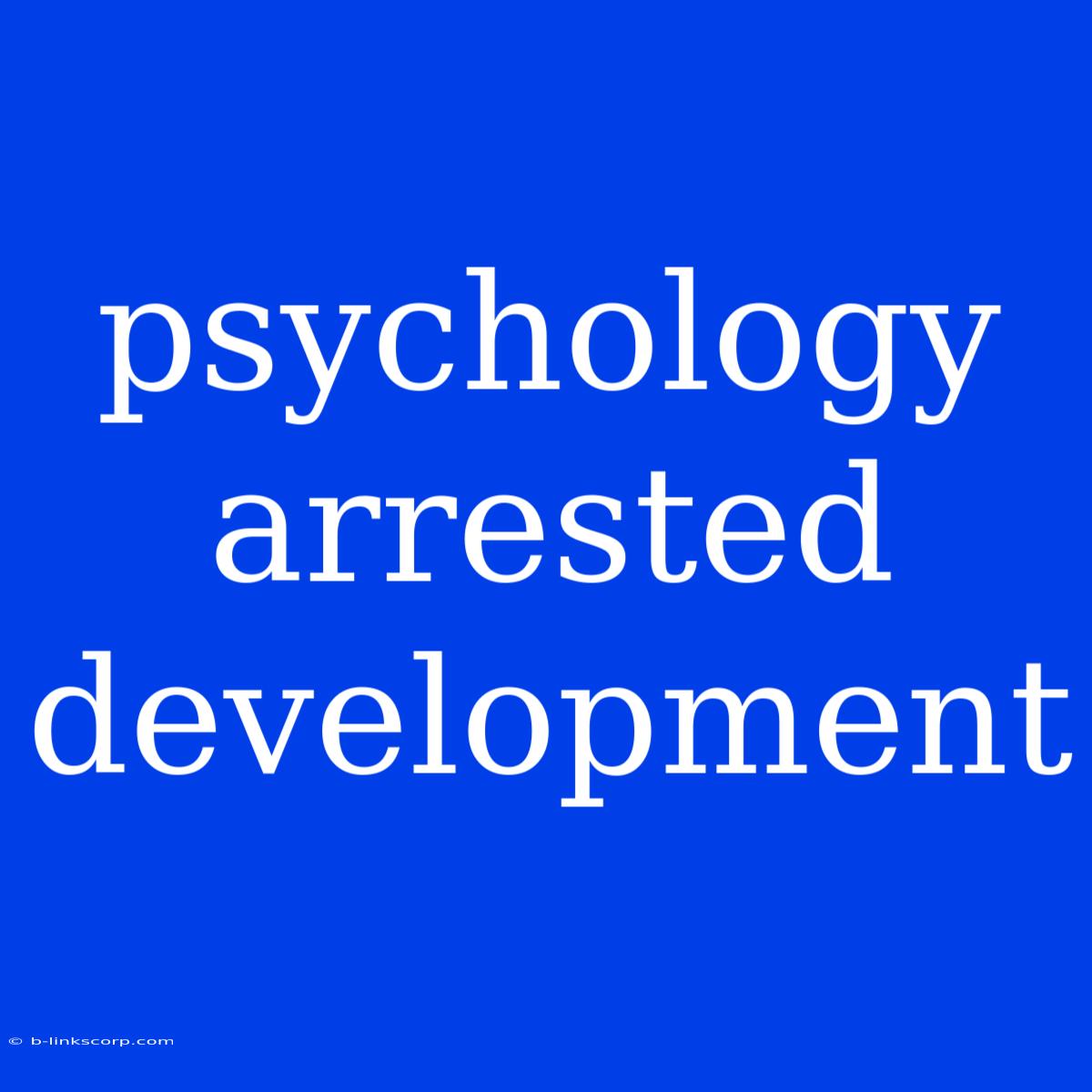Psychology of Arrested Development: A Hilarious Look at Immaturity and Growth
"There's a very special place in hell for people who do this," George Michael famously quipped in the TV show Arrested Development, a show that, despite its comedic nature, offers a surprisingly insightful look into the psychology of arrested development.
What is Arrested Development?
Arrested development is a psychological phenomenon where an individual fails to progress through the expected stages of emotional, social, and cognitive development. This can manifest in a variety of ways, from clinging to childish behaviors to struggling with adult responsibilities.
The Bluth Family: A Case Study in Arrested Development
The Bluth family, the dysfunctional central family in Arrested Development, provides a hilarious and poignant case study in this phenomenon. Each member exhibits signs of arrested development, ranging from the childish antics of Gob to the emotionally stunted Michael.
Key Characters and Their Arrested Development Traits:
- Michael Bluth: While seemingly the most "mature" Bluth, Michael exhibits traits of arrested development through his desperate need to control, his inability to let go of his father's legacy, and his frequent outbursts of anger.
- Gob Bluth: Gob is the poster child for arrested development. His immature antics, inability to hold down a job, and reliance on magic tricks are clear indicators of his psychological immaturity.
- Lindsay Fünke: Lindsay's emotional immaturity is revealed in her superficiality, obsession with appearances, and inability to take responsibility for her actions.
- Tobias Fünke: Tobias's desperate need for attention, his self-destructive behaviors, and his inability to form healthy relationships are classic signs of arrested development.
The Roots of Arrested Development
- Childhood Trauma: Trauma during childhood can significantly impact development, leading to emotional and psychological difficulties later in life. This is evident in characters like Lindsay and Tobias, both of whom experienced significant parental issues.
- Lack of Parental Guidance: Children need appropriate guidance and structure to develop healthy coping mechanisms and emotional maturity. The Bluth family's dysfunction creates an environment of chaos and neglect, hindering the healthy development of its members.
- Environmental Factors: Social and cultural factors can also contribute to arrested development. The Bluth family's wealth and privilege allows them to avoid consequences and avoid facing reality, further hindering their emotional growth.
The Importance of Examining Arrested Development
The comedic genius of Arrested Development lies in its ability to expose the absurdity of arrested development while simultaneously highlighting its seriousness. The show invites us to ponder the consequences of unchecked immaturity and the impact it can have on individuals and their relationships.
Moving Forward: Beyond Arrested Development
While the show presents a somewhat bleak outlook on the possibility of growth, it also offers a glimmer of hope. Michael's struggle to hold the family together, Tobias's attempts to find love, and Gob's yearning for acceptance all speak to the possibility of change.
Ultimately, Arrested Development serves as a reminder that while arrested development can have a lasting impact, it doesn't have to define us. With self-awareness, support, and a willingness to confront our past, we can all work towards healthier, more fulfilling lives.

